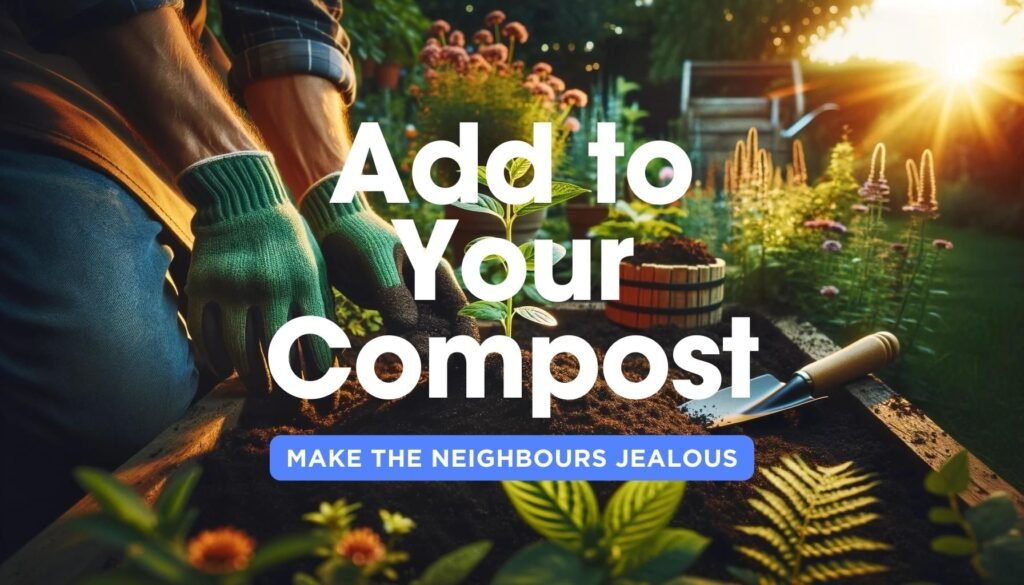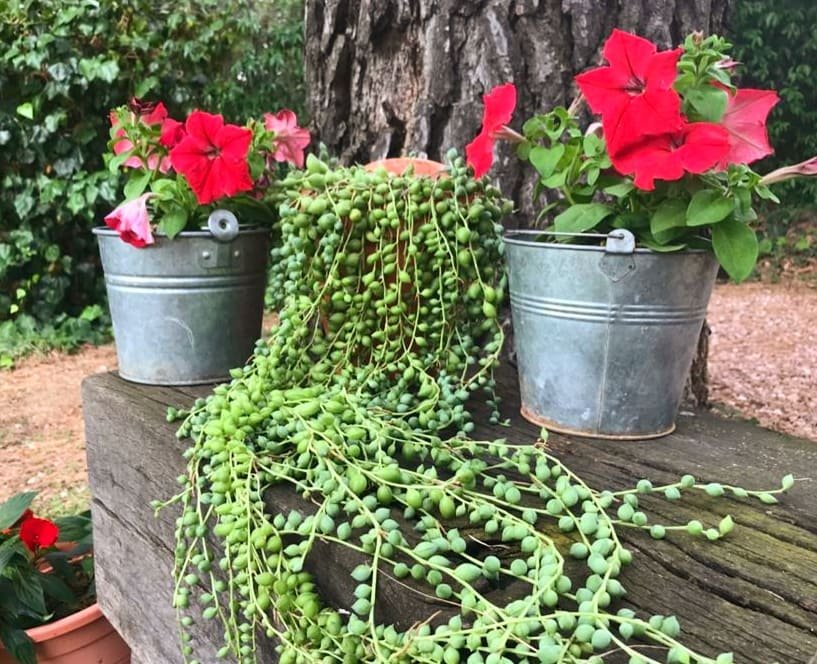Every gardener wonders what to add to their compost to get the best results. We’ll guide you on how to make ‘black gold’ in your garden and how to use it effectively. Making this powerful compost is easier than it sounds, and it’ll make your garden the envy of all your neighbours.
Composting – Nature’s Fertiliser
Composting allows you to create your own natural fertiliser, perfect for nourishing your plants. This eco-friendly fertiliser is free from artificial additives, making it ideal for your shrubs and flowers. It also provides a sustainable way to get rid of biowaste. For those passionate about eco-friendly gardening, composting is a top choice.
Ready to Begin Composting? Here’s What You Need to Know
Properly made compost is like a goldmine full of vitamins and minerals for your garden. When you use it, your plants get essential nutrients such as nitrogen, phosphorus, and potassium. What makes homemade compost even more special is that it has unique ingredients you won’t find in the bags you buy from the store. This means it can give your plants a real boost. Plus, creating your own compost is a great way to recycle kitchen scraps and garden waste, turning them into something valuable for your plants. It’s a simple and eco-friendly step every gardener should try at least once.

What Can You Add to Your Compost Pile?
You might be surprised at just how many items can be added to your compost heap, making it a rich source of nutrients for your garden. Here’s a comprehensive list that even includes some UK favourites:
- Expired spices, perfect for adding a bit of zest even in decomposition;
- Fruit preserves, jams, and jellies, which can sweeten the deal for your compost microbes;
- Spoiled beer and wine, turning last night’s party leftovers into today’s garden gold;
- Shredded newspaper, but steer clear of the glossy magazines;
- Napkins and paper towels, as long as they haven’t been used with chemical cleaners;
- Pet bedding from small animals like rabbits or guinea pigs;
- Woolen and cotton rags, giving old clothes a new life;
- Used matches, sparking life into your compost;
- Dry pet food, for when Fido’s dinner doesn’t quite finish;
- Outdated yeast, giving rise to more than just bread;
- Wood ash, keeping the fire’s benefits going;
- Tea bags, a British staple that can keep on giving;
- Toothpicks and wooden sticks, small but valuable additions;
- Sweets, because even your compost deserves a treat;
- Wine corks, blending a touch of sophistication;
- Human hair and pet fur, adding a personal touch;
- Feathers, to lighten the mix;
- Clipped nails, because every little bit helps;
- Sawdust, as long as it’s from untreated wood.
And for those in the UK, don’t forget to add your tea leaves (if you’re not using bags), potato peelings from your Sunday roast prep, and even the contents of your vacuum cleaner bag, assuming it’s not synthetic. This diverse mix not only enriches your compost but also helps reduce household waste.

Pure Recycling at Its Best
When you add items to your compost pile, it becomes a bustling hub of activity as various microorganisms get down to work. Actinobacteria, fungi, and bacteria form a powerful team, working together to decompose the plant material and transform it into rich compost. But it’s not just these microscopic workers doing all the heavy lifting; insects, invertebrates, and nematodes play crucial roles too, helping to aerate the pile and speed up the decomposition process.
This natural recycling process not only reduces waste but also creates a nutrient-rich fertiliser that’s perfect for your garden. Composting is a brilliant example of eco-friendly recycling, turning what would have been waste into valuable food for your plants. Plus, it’s a process that happens right in your backyard, showcasing the wonders of nature’s own recycling system.





